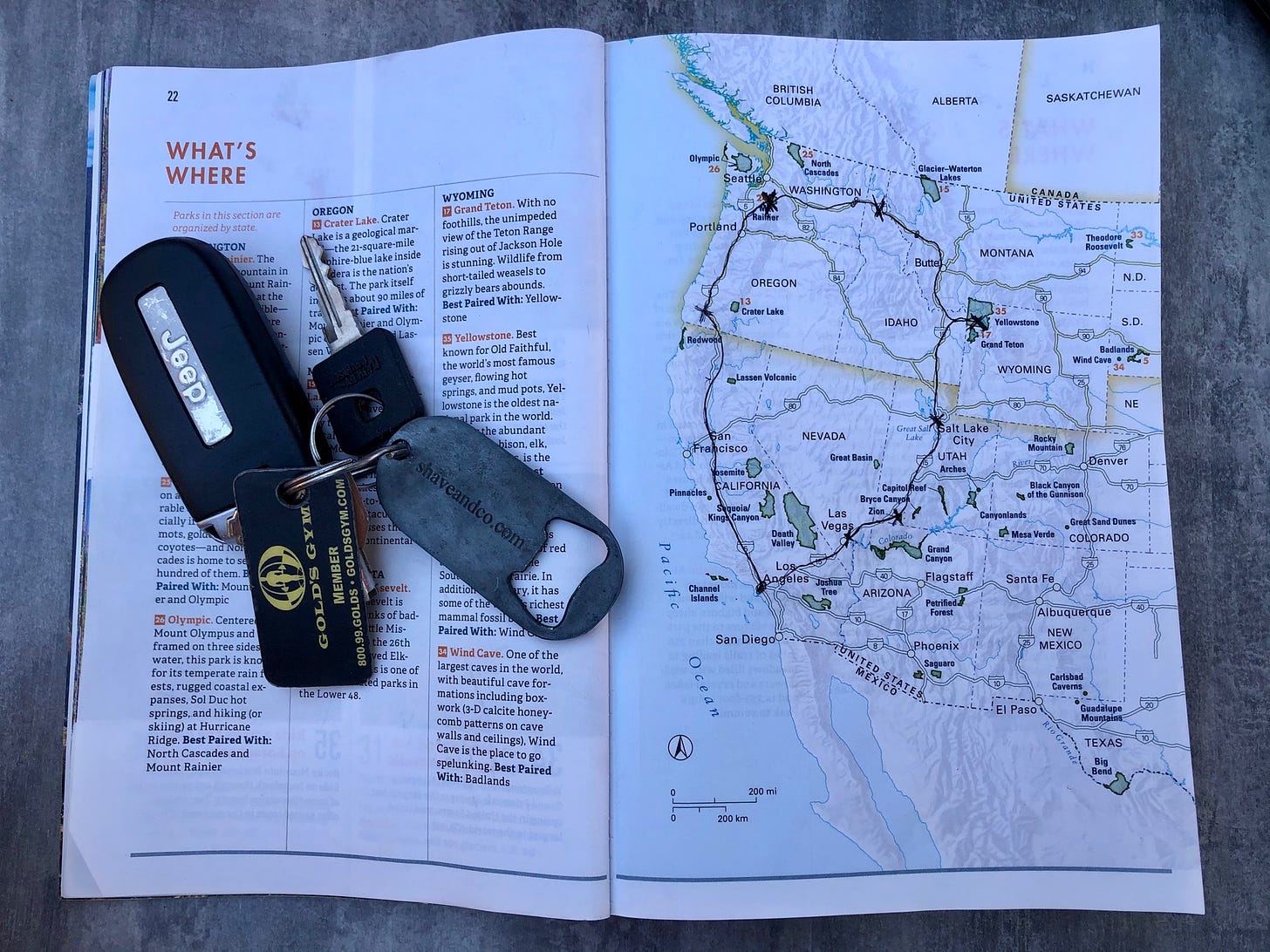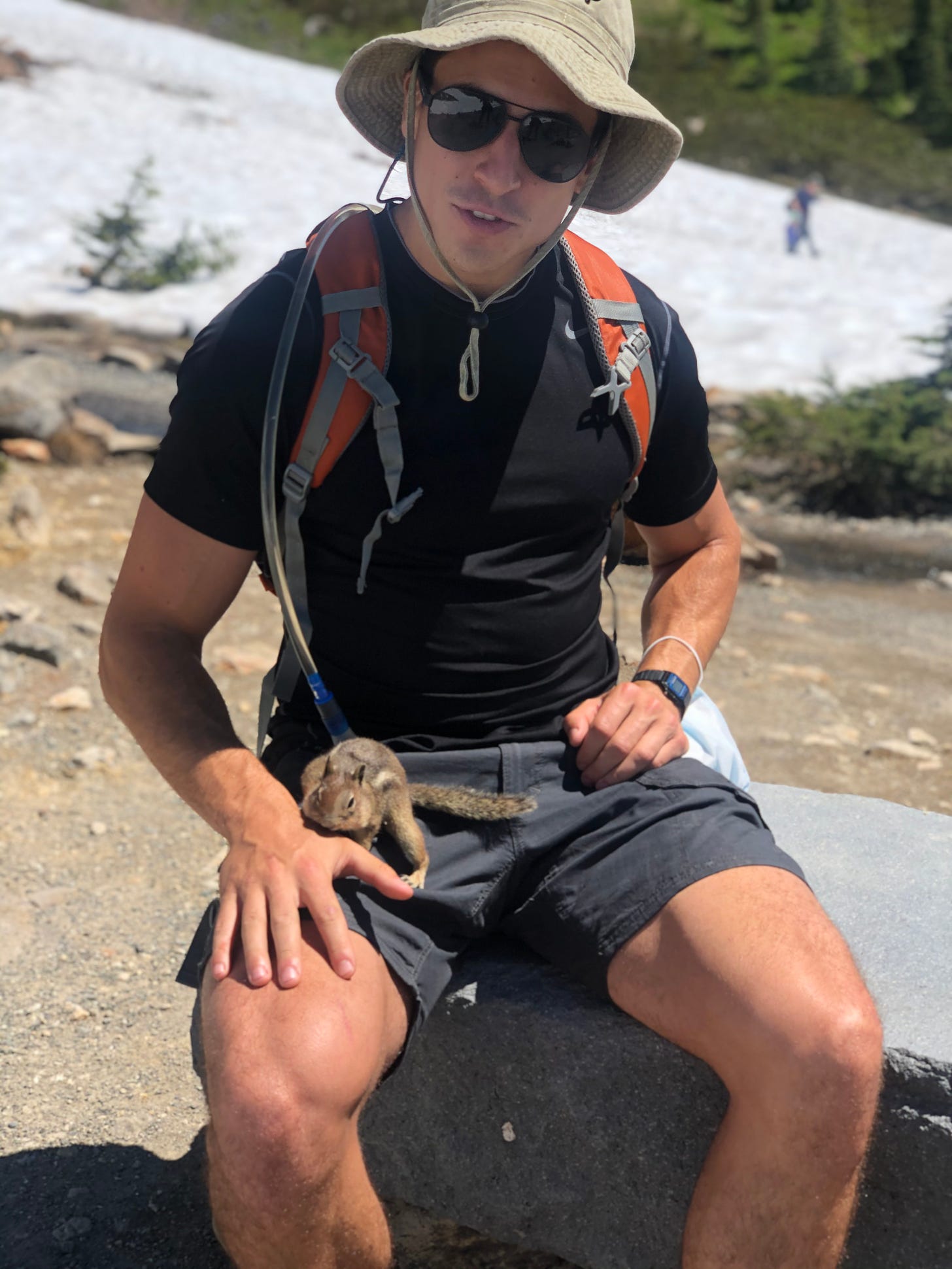Sunday Scaries (8/02/20)
Hi everyone,
Writing to you from San Francisco, where I’m officially on the last leg of a month-long road trip. Since I left Los Angeles in July, I’ve traveled through nine states and over three-thousand miles. It’s been a hell of a ride.

Paid subscribers to this newsletter will be receiving a full write-up of the trip, including some early thoughts on what I’m doing next. It involves water. That’s all I’m going to say for now.
If you live in the U.S. and COVID wrecked your international travel plans this year, then I would highly recommend visiting your closest National Park as an alternative option. If you’d like to learn more about how to make a trip like this work with a full-time job, then you can subscribe below.
What’s New This Week
Why You Need A Captain’s Log: This essay breaks down my barebones note-taking system and explains why you should create an “evergreen” system for ideas worth remembering.
Photo of the Week

Photo: Skyline Trail, Mt. Rainier
This photo is from a recent hike up Mt. Rainier’s Skyline trail. Skyline is a 7,000 ft climb into the glacier on top of Mt. Rainier. The year-round snow creates the perfect environment for plenty of wildlife, including mountain goats, bears, marmots, and a particularly friendly breed of ground squirrel. When I sat down for lunch, this little guy hopped into my lap long enough to snap a photo.
In This Week’s Edition:
⏳ Drugs to reverse aging: This article from Nature is a must-read for anyone interested in unconventional but plausible ideas. Getting familiar with the science behind aging is just the tip of a very interesting iceberg.
We have two ways to define age:
Our “chronological” age is the one we use for things like government ids and deciding how many candles to put on a birthday cake. We measure chronological age based on how many times our spinning ball of rock and water has orbited around the Sun.
Our “biological” age is a complex system that can be measured independently of chronological age through biomarkers known as “epigenetic clocks.”
Epigenetic clocks tend to differ widely across individuals based on genetics and lifestyle choices. The article above discusses a combination of drugs, including a popular diabetes medication called Metformin, that may reverse the biological age that we experience as a result of chronological age. Worth keeping an eye on.
📄 Jeff Bezo’s demonstrates the power of a well-structured narrative: It’s well known that Amazon has banned PowerPoint internally in favor of six-page narratives. Bezos claims that having employees write long-form essays helps to convey ideas more clearly. This policy has been in place for many years now, and all that practice shines through in this striking statement. From the document:
“And it wasn’t just those early years. In addition to good luck and great people, we have been able to succeed as a company only because we have continued to take big risks. To invent you have to experiment, and if you know in advance that it’s going to work, it’s not an experiment. Outsized returns come from betting against conventional wisdom, but conventional wisdom is usually right.”
Jeff Bezos
👽 An extraordinary document from the CIA archives: If you’re going to go down one internet rabbit hole today, it should be this one. I came across this document from the official CIA website that seems to be a conversation between two men discussing life on Mars (?) Reading this reminds me of how little I know about what is happening behind closed doors. More evidence for my “Aliens in 2020” theory.
📊 How to make a compelling pitch deck: I recommend this highly informative piece from the 1517 Fund with practical advice for creating a great pitch deck. It includes data from DocuSend that explains which slides to focus on (hint: it’s the financial ones). On average, investors spend less than four minutes looking at a deck—first impressions matter.
📡 An analysis of China’s systemized propaganda campaign: An essential skill to develop is the ability to filter your information consumption online. This new whitepaper from the Stanford Internet Observatory breaks down China’s online information campaign. This type of coordinated communication strategy from the government is very different than what we are familiar with in the states, where every politician tends to exercise their own opinions online. Some big takeaways:
China’s overt propaganda apparatus is robust, and managing both inward and outward-facing messaging remains a top priority for the CCP.
China’s overt messaging efforts span both broadcast and social media.
In addition to its extensive overt capabilities, China has less-attributable or unattributable communication options that it can draw on to influence opinions (e.g., click-farms and bot accounts)
Thanks for reading,
Phil
Sunday Scaries is a newsletter that answers simple questions with surprising answers. The author of this publication is currently living from his car and traveling across the United States. You can subscribe by clicking the link below. 👇



